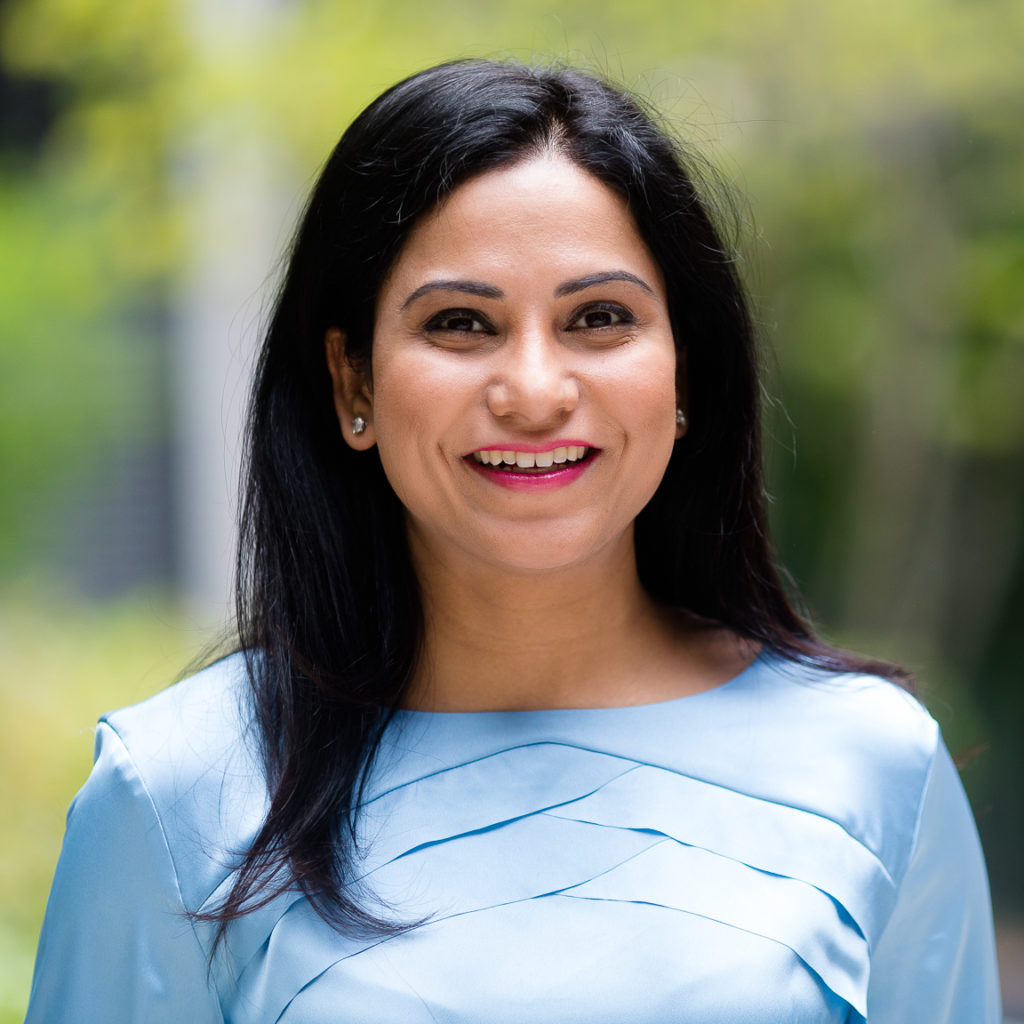COVID-19: women health and care workers need a new social contract

Dr Roopa Dhatt, Executive Director, Women in Global Health – Credit: Women in Global Health
By Dr Roopa Dhatt
Executive Director, Women in Global Health
Sometimes it takes an emergency or a profound shock to remind us what we value. The COVID-19 pandemic, having led to more than 170 million infections and 3.5 million deaths so far, according to the World Health Organization (WHO) has been such a shock to all our health, lives and economies. In most countries, the pandemic has led to praise for health and care workers – the majority of whom are women – who have responded with remarkable dedication to sudden surges in patients sick with a new and potentially deadly disease. COVID-19 has taken the lives of at least 115,000 health and care workers globally, recently announced WHO director general Dr. Tedros Adhanom Ghebreyesus. And the pandemic is far from over.
The uncomfortable truth is that women health and care workers face discrimination at work on many levels – on average they earn 28% less than their male colleagues and over a million work unpaid in the health sector; women are clustered into lower status roles in health and care and marginalised in leadership; and women health and care workers are regularly subject to sexual harassment and violence at work by male co-workers, patients and community members.
The WHO has designated 2021 as the International Year of Health and Care Workers in recognition of their dedication and exceptional service to humanity during the pandemic. This is therefore the right time to fix the long-standing gender inequities faced by health and care workers that in turn, undermine health systems’ delivery for us all.
I will highlight three examples here to illustrate why urgent change is needed:
First, global health is delivered by women but led by men — and it matters. Before the pandemic, it was well documented that women comprise 70% of the global health and care workforce but hold only 25% of senior decision-making roles and that pattern has been repeated in pandemic decision-making. A Women in Global Health survey of 115 national COVID-19 task forces in 2020 found that 85% had majority male membership. Women’s extraordinary contribution to health and social care has not earned them an equal say during the pandemic on the health systems they know best. It seems particularly perverse to side-line their expertise in a global emergency when we need our best talent at the table.
Second, global health security rests on the unpaid and underpaid work of women and this cannot continue. The gender pay gap in the health sector is, in reality, much higher because half the USD 3 trillion women contribute to health each year is in the form of unpaid work. According to a 2015 research published in The Lancet, the poorest women in the world currently subsidize health systems with their unpaid work – that has been exposed loud and clear by the pandemic and it is not new. Over one million work on the frontlines of community health unpaid or underpaid via task-based stipends. In the pandemic these women have performed essential contact tracing and community health promotion roles and, moving forward, they will be critical to the roll out of COVID-19 vaccines. Global health security and health systems’ delivery can never be strong while they rest on such an unequal and fragile foundation.
Third, women health and care workers have been characterized as heroines for remaining on the frontlines of the COVID-19 pandemic but many, even in high income countries, have been expected to work without the personal protective equipment (PPE) to keep them safe from infection. They have had reason to worry about the risk to their own health and that of their families. In addition to shortages, medical PPE suits have been designed following the male body as standard, despite having to be worn mostly by women. As a result, it is too large for the average woman and in many cases, not designed for women’s physiology, making it harder to remove without having to discard it. Recognizing this, the UN sent adult diapers and sanitary towels to women frontline health workers in Wuhan (China), responding to the bodily needs of women working long shifts unable to remove their PPE. Women health workers deserve PPE that protects them from infection and that enables them to work with dignity. We have been unable to discover the extent of this problem so Women in Global Health are conducting our own survey.
These are just three of many gender inequities and the impact goes beyond the disadvantage and distress caused to individual women workers. The pandemic struck a world with severe health and care worker shortages; according to WHO, 18 million additional health workers are needed in low-and middle-income countries to achieve Universal Health Coverage (UHC) by 2030 and there is a global shortage of 9 million nurses. After more than a year of the pandemic, health workers have died, millions have been infected, many will have long term health impacts, and all of them, everywhere, are exhausted. Reports are coming in from many countries that health workers are experiencing mental trauma and large numbers are considering leaving the profession. We cannot afford to lose one single trained health or care worker — an excellent reason to provide incentives for women to stay.
In February this year Women in Global Health launched the Gender Equal Health and Care Workforce Initiative with the Government of France and WHO, which is raising the issue and gathering commitments to drive change on leadership, pay, safety and decent work for the women in the workforce our health depends on. In addition to 2021 being the Year of Health and Care Workers, it is also the year of the Generation Equality Forum marking the 1995 Beijing Women’s Conference. This is the right year to build momentum for gender transformative change in health and social care.
This pandemic has to be a break with the past. This has to be the year we commit to a new social contract for women in the health and care workforce. Women in the health and care sector want the means — decent work, safety, dignity, fair pay and equal leadership — to do their jobs better and deliver stronger health outcomes and health security for everyone.

This article is being published as part of “Towards Equality”, an international and collaborative initiative gathering 15 international news outlets to highlight the challenges and solutions to reach gender equality.



